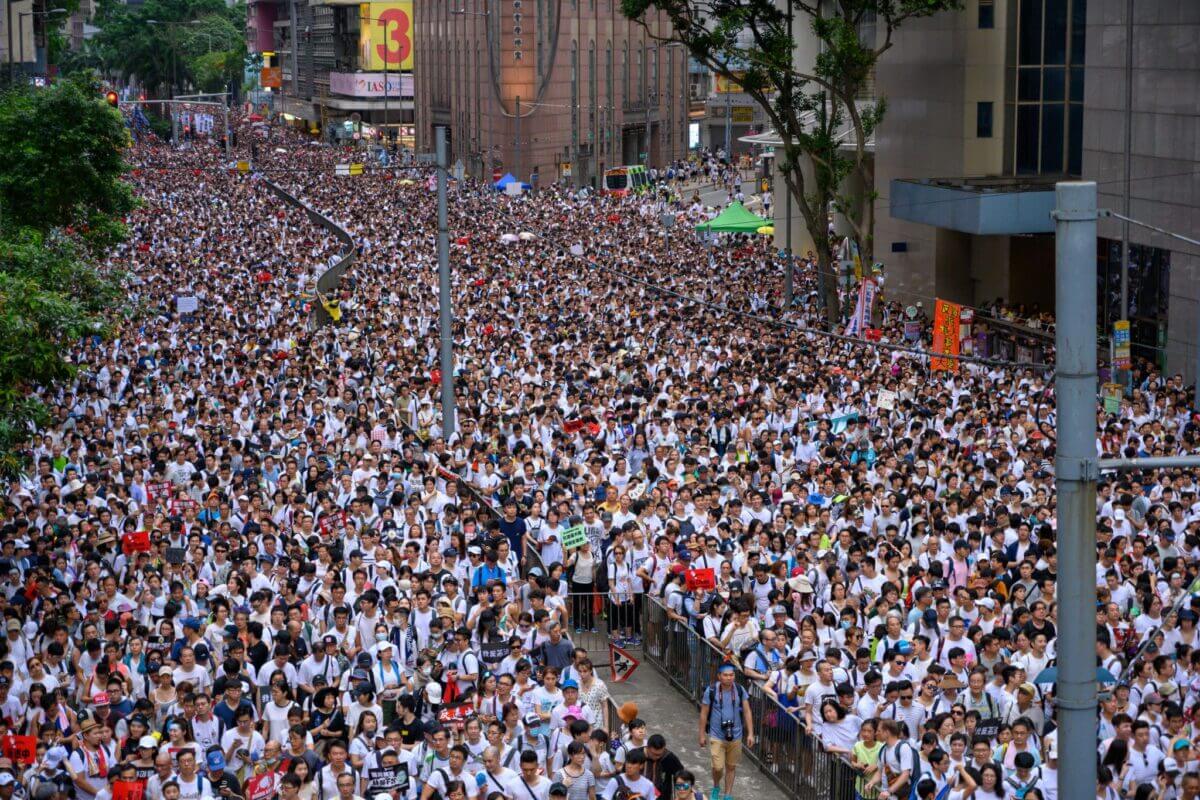
Asian Markets Rise Amidst Tension of China’s new Possible Hold on Hong Kong
Five indexes in the Asian trade markets indicate a rise in trading activity. This is as China seeks to impose a new law. This law could see Beijing have more legislative power over Hong Kong, with apparent support from Hong Kong’s officials.
The Nikkei 225 index in Japan rose by 1.73% with 353.49 points to 20,741.65. The Topix Index rose by 1.65%, up 24.40 points to 1,502.03.
Australian benchmark, ASX200 went up by 118.60 points to 5615.60 representing a 2.16% gain. The Kospi in South Korea was up 24.47 points, to 1,994.60, in a 1.24% rise.
Shares in mainland China traded with mixed results. Shanghai Composite rose 0.15% to 2,817.97 while the Shenzhen Composite and Component were fractionally lower at 1.750.82 and 10,592.8 respectively.
Meanwhile, in Hong Kong, the Hang Seng index gained back 1% in earlier losses, finishing up at 22,953.68 in a 0.1% rise.
Beijing Plans to Gain More Control over Hong Kong with New Security Law
At the end of last week, the Hang Seng index dropped by over 5% after China announced a new security law. This could reignite pro-democracy protests in Hong Kong. The government departments among the Hong Kong authorities seem to support the new law. This is despite thousands of Hong Kong citizens took to the streets in protest.
As reported by Reuters, the secretary for John Lee stated that Hong Kong’s independence was becoming more rampant and becoming a threat to national security.’
“In just a few months, Hong Kong has changed from one of the safest cities in the world to a city shrouded in the shadow of violence.”
The new law, if implemented, could see the increase of Beijing’s presence in Hong Kong. They would introduce Chinese Intelligence bases, to deal with secession, terrorist activities, and subversion. The news has sent shockwaves through diplomatic communities and businesses. The US threatening to impose sanctions on China if they implement the law.
The US Dollar to Benefit from China’s New Proposed Security Law on Hong Kong
Hong Kong’s retaliation over China’s intention to strong-arm the city weakened Asian equities. It then gave way for the European session to flatten, alongside a renewed positivity in the US.
“Risk sentiment proved resilient on Friday night, to concerns about the fallout from China introducing national security legislation in Hong Kong.” Said Hayden Dimes, Researcher at ANZ Research.
The US has spoken up against China’s intention. According to White House National Security Advisor, Robert O’brien, the US might consider imposing sanctions on Beijing, if it insists on going ahead with the controversial law.
“It is hard to see how Hong Kong could remain the Asian financial centre that it’s become if China takes over”. O’Brien said, speaking to NBC’s.
Meanwhile, Chinese foreign minister, Wan Yi, stated that the United States is in the middle of the Beijing-Hong Kong feud. It is playing both sides and pushing both economic powerhouses to the brink of a “New Cold War”.
“It has come to our attention that some political forces in the US are taking China-US relations hostage and pushing our two countries to the brink of a “new Cold War”. This dangerous attempt to turn back the wheel of history will undo the fruits of decades-long China-US cooperation, dampen America’s own development prospects, and put world stability and prosperity in jeopardy.”
Rising Tension to Further Strain the US-China Phase One Trade Deal
The dollar will likely face upside risks following the rising tension with the US and China. If either of the two countries were to withdraw from the Phase One deal, the dollar will “sharply appreciate” according to Currency Strategist at the Commonwealth Bank of Australia.
Meanwhile, the Japanese Yen traded at 107.71 with the US dollar, strengthening from the previous week’s 108. The Australian dollar traded at $0.6522 in a 0.2% downturn.
Economic news might soon favour Japan’s economy after Prime Minister Shinzo Abe announced the country would soon be lifting coronavirus lockdown measures in Tokyo and other zones on Monday.
Approximately 5.4 million people have been affected by coronavirus, causing worldwide economic devastation and plunging the global economy into the worst financial crisis since the Great Depression.




